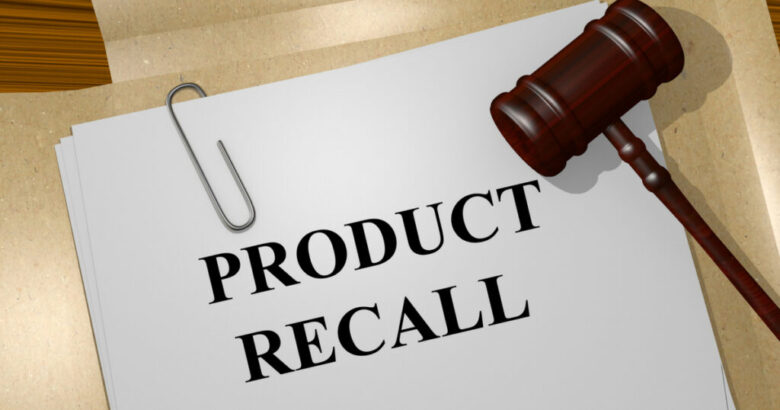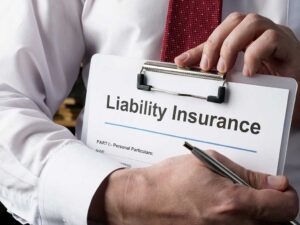A recall is the last thing a business wants, but even the most cautious companies can encounter unexpected product problems. Recalls are possible, and the consequences can be serious. They can be present in contaminated food, damaged electronics, or dangerous children’s toys. If a business is poorly managed, the financial consequences and reputational damage can get a company in trouble. This is where product recall insurance comes in. This safety measure, which covers the costs of crisis management, product recalls, and reporting costs, can assist businesses in recovering financially after a recall. In this article, we’ll explain what product recall insurance is, why it’s important, and how it can help your business avoid disaster.
Understanding Product Recall Insurance:
Product recall insurance is a type of commercial insurance that helps businesses cover the costs of recalling poor-quality or high-risk products. General liability insurance covers injuries and property damage to others. Recall insurance, on the other hand, only covers the direct costs a business incurs when it takes a product off the market. This can include everything from informing the public and shipping costs to legal fees and repairing any damage to your brand image. There are even insurance policies that will compensate for lost sales if a recall causes a significant drop in revenue. Whether you manufacture, ship, or sell goods, this coverage can save your business in an emergency.
Why Businesses Need Product Recall Insurance:
Recalls are costly—sometimes running into the millions of dollars—but many businesses don’t realize just how costly they are. Without proper coverage, businesses may not be able to cover the costs of a recall. This can leave them in serious financial trouble or even bankrupt. In addition to the immediate costs, recalls can also damage your brand image and lead to long-term revenue losses. Product recall insurance mitigates these risks by covering key costs. This allows businesses to act quickly and effectively. Food and beverage, pharmaceutical, automotive, consumer electronics, and other industries are all more susceptible to recalls, making this type of insurance a great way to manage risk.
What Does Product Recall Insurance Cover?
A comprehensive product recall insurance policy typically covers a few key items. The costs of a recall include notifying customers of the problem, returning the defective items, and disposing of them safely. If a store or dealer has to pay for the product you recalled, you can use third-party recall insurance. The business receives the proceeds of making or purchasing a replacement product through the switching costs. Some insurance policies also cover business interruption to compensate for lost sales during a recall. Crisis management and public relations costs may also be covered to help a business restore its image. Different policies cover different things, so businesses should carefully consider their options.
Industries That Benefit Most from Recall Insurance:
While any company that produces or sells physical products can benefit from recall insurance, some industries face higher risks. Food and beverage manufacturers deal with contamination risks like bacteria or foreign objects. Pharmaceutical and medical device companies must comply with strict regulations, where recalls can be frequent and costly. Automotive and electronics manufacturers face recalls due to safety defects or malfunctions. Even toy manufacturers and children’s product companies are at risk due to strict safety standards. If your business operates in a high-liability sector, recall insurance is a must-have safeguard.
How Much Does It Cost to Purchase Product Recall Insurance?
The cost of product recall insurance depends on many factors, including the type of product, the risk of the industry, the company’s annual revenue, and the recall history. Riskier businesses, such as food or medical products, typically have higher premiums. Coverage limits also affect the price; businesses that are more profitable or risky may need more comprehensive (and expensive) plans. For a small business, premiums can run into the thousands of dollars per year, while premiums for a large business can run into the hundreds of thousands of dollars per year. Businesses can find the best combination of cost and coverage by working with an experienced insurance broker.
How to Choose the Best Recall Insurance:
Businesses should think carefully about what they need because not all recall insurance is the same. First, consider the risks. Is your cargo more likely to become contaminated, cause problems, or cause regulatory issues? Then, find out how much the insurance covers. For example, does it cover all the costs of a potential recall, such as legal fees and lost profits? Check for exclusions—some plans do not cover certain types of recalls, such as voluntary recalls. Compare insurance companies and choose one that understands your business and has a good reputation for paying claims. Finally, review the claims process. In the event of a recall, claims must be handled promptly and accurately.
What to Do When a Product Is Recycled:
Even if you have insurance, recalls can be stressful. But having a plan can help. First, determine what the problem is and how extensive the recall is. Notify regulators and stakeholders as required by law. Assemble a crisis management team of lawyers and public relations experts. Being honest with your customers will earn their trust. Keep track of all your expenses when making an insurance claim. Work closely with them to ensure your insurance meets your needs. A well-executed recall plan can minimize damage and speed up the recovery process.
What Not to Do When Purchasing Recall Insurance:
Many businesses make costly mistakes when purchasing or using recall insurance. Failing to consider how much coverage you need can leave you with a coverage gap. Failing to read the limitations of your policy can result in your claim being denied. Notifying people too late about a recall can be a regulatory violation. Failing to keep good records can make it difficult to prove a claim. Choosing the cheapest insurance without considering how much coverage your policy covers can be a bad idea. Avoiding these mistakes can keep your business safe during a recall.
What’s Next for Product Recall Insurance?
As consumer safety regulations become stricter and supply chains become more complex, product recall insurance is becoming increasingly popular. New technologies are changing the future of insurance and preventing recalls. For example, blockchain can track cases, and artificial intelligence can predict risks. Cyber-related recalls, such as those due to software vulnerabilities, are also becoming a growing concern. Product recall insurance is more flexible than ever as insurers adapt their plans to cover new risks. Companies that understand market dynamics are best positioned to manage recall risk.
Conclusion:
Any company can experience a product recall. The financial and reputational damage can be severe. Product recall insurance is an important safety net, as it covers costs such as notifying customers, getting the product back, paying legal fees, and losing revenue. By understanding how insurance works, choosing the right policy, and preparing for a potential recall, businesses can avoid bankruptcy. Whether you produce food, market, or sell items, recall insurance is an important part of risk management. Don’t wait until something goes wrong to consider your coverage options. Take action now to secure your business’s future.
FAQs:
1. What are the insurance benefits for a product recall?
Product recall insurance can help businesses cover the costs associated with recalling a poor-quality or dangerous product. This can include notifying customers, getting the product back, paying litigation costs, and losing revenue.
2. What types of businesses are most likely to need recall insurance?
The businesses most at risk include those that produce food and beverages, pharmaceuticals, automobiles, electronics, and children’s toys.
3. Does general liability insurance cover return freight?
No, general liability insurance typically only covers bodily injury or property damage caused by a third party. It does not cover the costs associated with the recall.
4. How much does recall insurance cost?
It can range from a few thousand to hundreds of thousands of dollars per year, depending on the type of business and the amount of insurance needed.
5. Can recall insurance help small businesses?
Yes, even small businesses face costly recalls. Insurance can help you minimize your financial risk and help you comply with regulations.




